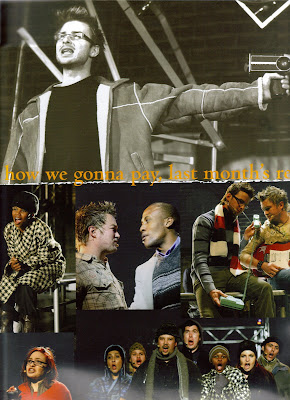2 January 2008

Despite the economic gains of 2007, the challenge of reducing poverty and inequality in South Africa persisted, President Thabo Mbeki said in his New Year's message on Monday.
Mbeki said the government would have to redouble its efforts "to increase the tempo of economic growth and job creation, to raise the floor of prosperity that must go with our democracy."
Mbeki said that in the year just ended - and the 13 years since the country's first democratic elections - South Africans had "laid a firm foundation for us to realise all these objectives."
South Africa's economy faced some important challenges in 2008, Mbeki said, including an inflation rate driven by high crude oil and food prices, higher interest rates and a sustained deficit in the country's balance of trade, "reflecting that we are importing more than we are exporting."
Despite these challenges, Mbeki said, the country had to keep pursuing "a higher rate of economic growth, driven by increased investments and improvements in productivity.
"At the same time, we must continue to strive to ensure that this growth also results in the creation of new job opportunities. Among other things, this means that we must sustain our focus on the challenge of raising the skills levels among our working people."
The government also had to accelerate access to adequate housing, affordable health care, education and basic services such as water and sanitation, and ensure that the country's social grants reached the people most in need.
The year ahead, Mbeki said, would "present our country with new tasks and challenges arising from decisions adopted at the recent 52nd national conference of the ruling party, the ANC."
At the conference in Polokwane in December, Mbeki failed to secure a third term as president of the ANC, as delegates voted overwhelmingly for Jacob Zuma to lead the party over the next four years.
The result, which came in spite of the fraud and corruption charges hanging over Zuma's head, puts Mbeki's former deputy in pole position to become South Africa's next President when Mbeki's second term expires in 2009.
It has also raised concerns that, until the next general elections in 2009, there will be two "centres of power" in South Africa.
Mbeki said South Africans had to respond to these challenges "bearing in mind the national goal our country has set itself - the goal of ensuring that our democracy remains unwavering in the pursuit of the objective of a better life for all our people."
On the international front, Mbeki expressed "our sense of outrage at the murder of the prominent Pakistani political leader, Benazir Bhutto. We sincerely hope that the government and people of Pakistan will find the strength and wisdom in themselves successfully to respond to the crisis created by the assassination of Ms Bhutto in the interest of peace and a stable democracy in their country and region.
"We also hope that the process of negotiations intended to end the Israeli-Palestinian conflict, initiated at the Annapolis Conference in the United States, will proceed vigorously to meet the 2008 deadline agreed by the leaders of Palestine and Israel."
Mbeki said he was confident confident that Zimbabwe's government and opposition leaders would "conclude their negotiations successfully" to lay the basis for free and fair elections to take place in that country and enable South Africa's "sister country to address its socio-economic challenges in unity."
The President closed off by wishing SA's national soccer team, Bafana Bafana, success in the African Cup of Nations tournament which kicks off in Ghana in a few weeks.
"Our entire nation is confident that Bafana Bafana will emulate the example set by the Springboks, who only recently won the Rugby World Cup," Mbeki said. "Once again, on behalf of our government and in my own name I wish you, fellow South Africans, a happy and successful 2008."




















.jpg)


























.jpg)




